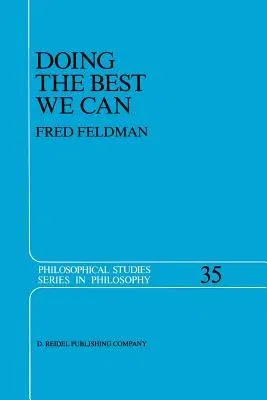Fred Feldman
(Author)Doing the Best We Can: An Essay in Informal Deontic Logic (Softcover Reprint of the Original 1st 1986)Paperback - Softcover Reprint of the Original 1st 1986, 27 September 2011

Qty
1
Turbo
Ships in 2 - 3 days
In Stock
Free Delivery
Cash on Delivery
15 Days
Free Returns
Secure Checkout
Part of Series
Philosophical Studies
Print Length
246 pages
Language
English
Publisher
Springer
Date Published
27 Sep 2011
ISBN-10
9401085315
ISBN-13
9789401085311
Description
Product Details
Author:
Book Edition:
Softcover Reprint of the Original 1st 1986
Book Format:
Paperback
Country of Origin:
NL
Date Published:
27 September 2011
Dimensions:
23.39 x
15.6 x
1.4 cm
ISBN-10:
9401085315
ISBN-13:
9789401085311
Language:
English
Location:
Dordrecht
Pages:
246
Publisher:
Series:
Weight:
371.95 gm

